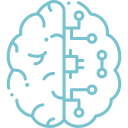Treating a gambling addiction
Problem gambling, or gambling addiction, is a behavioural disorder that acts much like a substance addiction does and can harm many areas of your life. We can help with recognising a gambling addiction and offer treatment plans.
Treating problem gambling is a critical process for those struggling with this devastating addiction. Problem gambling, or gambling addiction, can have serious consequences on a person’s personal, social, and financial life. Therefore, it is crucial to address this disease with seriousness and determination.
Treatment of problem gambling usually involves a combination of psychological therapies, emotional support, and lifestyle changes.
CITA is a pioneering treatment center to quit gambling and is located in a unique natural environment.
TREATMENT FOR PROBLEM GAMBLING
In most cases, the treatment of problem gambling is initiated, more because of the pressure exerted by the environment than because the patient has really accepted the need for treatment. However, this step of acceptance of gambling addiction is critical.
It is from the moment the patient becomes fully aware of his actions and the consequences of them that the process of quitting begins.
The problem of problem gambling addiction is a growing reality today, largely because new technologies have come to complicate this problem by providing new and stimulating gaming environments to which users have permanent access.
Online gambling addiction has been included in the DSM V (the reference manual of psychological diseases) as an independent pathology. Today, with a smartphone, gambling is no longer an activity exclusive to certain places (slot machines, casinos, bookmakers).
There are frequent cases in which they do not know how to overcome problem gambling, and it is complicated by the consumption of substances to which the individual has traveled to try to cope with the psychological pressure caused by their addiction.
In other cases, it is the addiction to a substance that has predisposed the individual to indiscriminate and impulsive gambling
At CITA we are experts in the treatment of all types of addictions, recognized as a leading addiction center in Europe where we offer help for problem gamblers.
The player can access from anywhere and at any time any of the hundreds of online games and bets that proliferate on the network.
CITA’s working method for treating problem gambling involves developing an individualized plan for each patient that allows us to establish a treatment program adapted to each individual.
CITA has more than seventy professionals for the treatment of addictions, including psychiatrists, psychologists, therapists… and it is one of the reference centres in Spain and Europe in the field of dependencies.

Let us help you take the first step
GAMBLING ADDICTION

Gambling addiction stems from the disorder with gambling, gambling, and slots especially. Pathological gambling is the disorder that involves gambling and betting addicts.
Problem gambling is defined as a disease, since gambling addiction comes from a disorder that affects life, both socially, personally and professionally. When you suffer from problem gambling, your ability to self-control is affected and it is difficult to say ‘No’, therefore being unable to stop the urge or desire to gamble.
When gambling is part of everyday life, and is given more and more importance, the problem of being addicted to gambling begins. It is becoming easier to access the betting markets, either from your mobile phone or from a tablet or PC, and you do not need a physical presence, so there are also more and more people with this disease.
While casinos and bookmakers have been forced to delimit the barriers to entry to gambling a little more, either by law or the age of majority. Gambling addiction currently has an impact on the lives of many families and that is why at the Center for Research and Treatment of Addictions (CITA), we carry out effective treatments to cure problem gambling.
Quitting being addicted can be easier when you get into the hands of an addiction specialist and start treatment at a gambling addiction help center. Trying to help a sick addict through prohibitions and disruptions on a day-to-day basis doesn’t usually help at all.
Treating this problem from a psychological point of view with the correct treatments for gambling addiction and with the appropriate and individualized guidelines, has a positive impact on the change in attitude of the patient suffering from gambling addiction.
What our patients say about us
Mención especial a Marta cuchet que aún lucha conmigo por salvarme la vida de esta enfermedad. No hay palabras para describir lo que hace y ha hecho por mi.
Y también quería comentar la profesionalidad de Anaís y su ética a la hora de no cometer intrusismo como en otros centros.
Ya puede valorar gerencia los profesionales que tiene porque gente así hay poca.
Eternamente agradecido.
Denis y Mercedes.
Pero no puedo escribir esta reseña sin mencionar a las verdaderas guardianas del día a día: las chicas de recepción. Siempre con una sonrisa, un gesto amable o una palabra de ánimo cuando más lo necesitas. Y muy especialmente Pepi, que es luz pura. Gracias por tu calidez, por tu paciencia y por hacer que uno se sienta en casa desde el primer día.
También me llevo mucho de mis compañeros. Personas increíbles con las que he compartido risas, lágrimas y momentos de verdad. En CITA he aprendido que no estamos solos, y que pedir ayuda es un acto de valentía.
Gracias por acompañarme en este renacer. No olvidaré esta etapa ni a quienes la habéis hecho posible
Los profesionales y la comunidad han ayudado a mi hermano en todo el proceso de desintoxicación y ahora seguirá vía on line con su psicóloga.
Estoy súper agradecida de ♥️
Tengo de vuelta a mi verdadero hermano.
Magníficos profesionales que te ayudarán durante tu estancia y después de ella.
Un remanso de paz que irá apareciendo de forma más y más clara, si te comprometes contigo mismo.
HOW TO DETECT PROBLEM GAMBLING
At the onset of the disease, the pathological gambler suffers from an uncontrolled urge and an uncontrollable “need” to play. During this phase, almost no problem gambler is able to recognize that he or she has lost control.
During this phase, a first “winning phase” is observed, in which the player wins money or prizes either unexpectedly or also sought. Mistakenly the player understands that winnings have a high frequency and a low possibility of losses, but this is not the case.
The next phase is identified as the “loss phase”, which, as the name suggests, the player begins to frequent and get used to playing spaces and the player-loss bond begins to be created.
In this phase, the player persists in playing the game as an attempt to recover what has been lost. Subsequently, you begin to lose consciousness and limits on betting.
It also gradually leads to the practice of gambling in solitude, accompanied by lies and large losses of money or material goods.
As a consequence, the gambler will enter the so-called “despair phase”. In this phase, drastic changes in the player’s behavior are observed, such as consumption of alcohol or other substances as a result of the bad feeling after losing.
There is also serious deterioration of relationships, desperate or criminal search for money, and legal complications that are the prelude to consummated and unexpected suicide attempts.

Let us help you take the first step
Why choose CITA?

Ou professionals have more than 40 years of experience

Expert help is available 24 hours a day, 365 days a year

We apply and adapt to the latest advances in neuroscience

All pets are welcome on our expansive, green grounds
HOW TO TREAT PROBLEM GAMBLING
Problem gambling usually begins in early adolescence in men and between the ages of 20 and 40 in women. As we pointed out before, it is a fact that new forms of communication are also an increasingly early portal for access to the game. This double problem of, on the one hand, an increase in forms of gambling and, on the other, greater exposure of minors, is causing a worrying increase in the rates of problem gambling in Spain.
Problem gambling involves repetitive behaviors. People with this problem have difficulty resisting or controlling the urge to gamble.
Although it shares characteristics of obsessive-compulsive disorder, problem gambling is a different condition.
Some studies suggest that there are chemical causes at the root of addiction in problem gamblers. It has been found that norepinephrine levels in compulsive gamblers are different from those of casual gamblers.
In problem gamblers, casual gambling leads to habitual gambling. Stressful situations can make gambling problems worse. Like any addiction, problem gambling can generate high levels of anxiety in the patient.
People who suffer from problem gambling are often ashamed of it and try to keep others from knowing about their problem.
Problem gambling is defined as behavior that consists of five or more of the following symptoms:










SYMPTOMS OF PROBLEM GAMBLING
How do you determine if you are addicted to gambling?

Irritability
The compulsive gambler is usually easily irritated and expresses aggression verbally or physically. He commonly reflects moodiness and does not control his impulses, he is rude.

Anxiety
Because losing or winning becomes a concern for the gambler, there is an emotional restlessness in him/her, significantly affecting the mood, disfavoring concentration on truly relevant things such as work, family, projects, health, etc. and robbing him or her of great mental energy, producing an emotional charge and consequently leading the person to depression.

Lies
Carried away by the disease, the gambler will lie in his eagerness not to discover the amount of money he uses in his bets or games of chance, turning lying into a habit with the potential risk of developing a personality disorder.

Play Hide and Seek
The problem gambler will satiate his addiction on the sly and resort to disappearing during his hours of gambling. Gambling without anyone in your family knowing is your chance to satisfy your addiction for several hours, until you lose everything.

Borrow money
Asking for money is an easy recourse when you’re not aware of the problem. For the problem gambler, it is a good idea to lend money to a family member or acquaintance in order to spend it on gambling, thus looking at their own interest without measuring the consequences. In the addict’s mind, the disorder does not make him consider the situation or possibility of losing that money.

Obsession with gambling
The problem gambler spends the whole day thinking about the money he earned and lost as a result of his vice, taking away his peace of mind and attention. In an extreme way, he has his attention focused on the game, excluding the information that surrounds him.
Let us help you take the first step
FAQ Frequently Asked Questions About Problem Gambling Treatment
What is gambling addiction or problem gambling?
It is based on the irrepressible desire to bet money compulsively, persistently and recurrently in games of chance and betting, either in person or online. The problem gambler has many problems controlling their impulses in the face of gambling, neglecting or abandoning their family or work environment. That is, the game becomes the center of their existence. Problem gambling is defined as a disease.
What are the main symptoms of problem gambling?
Some of the most obvious symptoms are as follows:
- Insist on the immediate recovery of money lost through gambling.
- Having the need to play a greater number of hours, as well as to increase the amount of bets.
- Suffering sudden mood swings, you can go from euphoria to depression or irritability on a recurring basis.
- Having a distorted image of reality.
- Progressive abandonment of responsibilities and withdrawal from their family and work environment.
Severe problems with self-control. - Don’t assume losses as a consequence of your addiction, trying to find arguments in a witty way.
- Use gambling as a form of escape.
- Feeling frustrated or irritable when trying to decrease the amount of bets or hours spent on gambling.
- Gambling on the sly and obsessing over everything related to gambling.
- Lying to hide the addiction, especially from family, friends, or co-workers.
What Phases Can Be Found in Gambling Addiction?
Fundamentally, three phases are considered:
- Earning Phase: In this phase the player earns money or rewards unexpectedly or occasionally. This causes him to distort reality, believing that this gain can be repeated repeatedly and easily in the future.
- Loss phase: the player becomes familiar and accustomed to visiting the gaming spaces, either in person or virtually. With each visit, his emotional attachment to the game and his environment increases. Try to justify the losses.
- Desperation Phase: The player has experienced noticeable changes in their behavior. It is usually accompanied by an obsession with gambling and, in many cases, the consumption of substances such as alcohol or cannabis that serve to attenuate their discomfort in the face of economic losses. In addition, it is often accompanied by a serious deterioration of their relationships, as well as the abandonment of their personal responsibilities.
Can problem gambling be prevented?
Yes, definitely. Mainly through educational and informational actions that warn of the risks of a type of addiction that is on the rise, especially among young people and the environment of bookmakers and online casinos. The intervention of a specialist before the appearance of the first symptoms is key to avoid the worsening of the pathology.
How can problem gambling be treated?
Problem gambling is currently affecting an increasing number of young people who are especially tempted by casinos and online bookmaker websites. The increasing digitalisation of society and widespread access to new technologies, such as smartphones or laptops, is leading to an increase in the number of people addicted to gambling. There are many tools available to treat addiction, such as:
- Cognitive behavioral therapies.
- Individual or group therapies.
- Use of medication prescribed by a specialist.
What complications can there be related to problem gambling?
The main thing is to consult with a doctor or mental health professional to make a diagnosis and start personalized treatment as soon as possible. The longer we go without trying to solve this pathology, the more risk we run of it getting worse with some complication, for example:
- Financial problems resulting from an increase in the amount of bets or accumulated debt.
- Anxiety states or panic attacks.
- Depression.
- Suicide attempts.
- Heart attacks, tachycardia, permanent state of excitement.
- Persistent stress.
- Drug use to mitigate the consequences of problem gambling.
How to help a problem gambler?
As with other addictions, problem gambling is a pathology that tends to worsen over time, especially because the addicted person tends to increase the average amount of their bets, which increases the risk and importance of their problems and conflicts.
It is important for the family to understand that it is a disease that requires support, accompaniment and affection to help the patient heal. We must help the addict to decide to start treatment for problem gambling in a qualified rehabilitation center.
Let’s avoid reproaches, angers and quarrels. This is not the time. Let’s help the patient to be aware that he has a problem that needs his willpower to be overcome. And that in that struggle he can count on the support and love of his environment.









